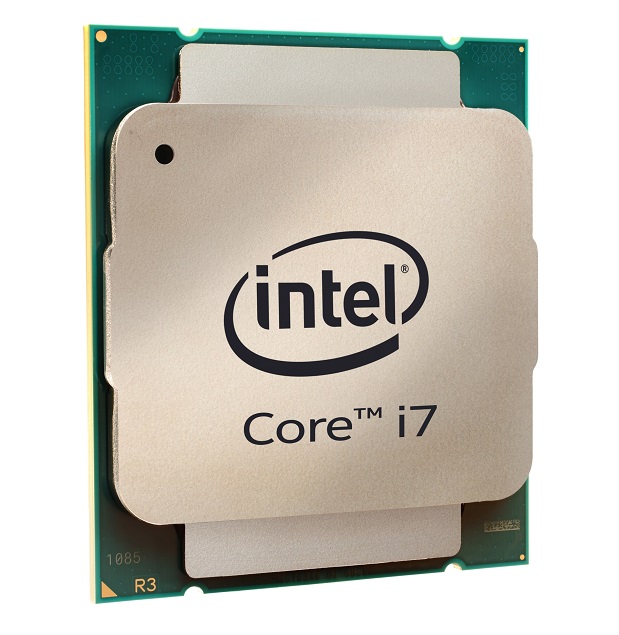Intel finally releases Haswell-E Extreme Edition processors


While most other segments of the PC market that Intel provides processors for -- from mainstream desktops to laptops of all shapes and sizes -- have the felt the impact of its successful rollout of Haswell chips (the fourth iteration of its "Core" platform), the highest of high-end client desktops have been stuck with year-old Ivy Bridge Extreme Edition CPUs. But the wait for gamers, overclockers, and other PC enthusiasts is finally over, as the tech Goliath has officially taken the wraps off its Haswell-E processors.
Tech Pro Research
Most highly anticipated is the new crown jewel of Intel's desktop CPUs, the Core i7-5960X Extreme Edition. The 5960X is noteworthy for being the company's first desktop processor to include eight cores, a total previously reserved for its Xeon server chips, and 16 computing threads. It also marks the debut of DDR4 memory support for Intel's client processors and the new X99 chipset, which includes up to 40 PCI Express 3.0 lanes, amongst other features. Each core of the 5960X has a base clock speed of 3GHz and can run as fast as 3.5GHz in Turbo Boost mode, and the processor comes with 20MB of L3 cache. As with the top Extreme Edition chips in the past, the 5960X is priced higher than most desktop PCs at $999 (plus inevitable retailer markup), but that won't deter the well-heeled enthusiasts who want the latest and greatest from Intel.
Those with a budget in mind might be more interested in the other two new Extreme Edition processors, which share many of the 5960X advantages, though can't match its superior performance. The i7-5930K and i7-5820K come with "only" six cores, but still get the benefits of the X99 chipset and Haswell microarchitecture. They actually boast higher clock speeds than their eight-core sibling -- the 5930K possessing a 3.5GHz clock speed and 3.7GHz Turbo Boost frequency, the 5820K a 3.3GHz base clock frequency and 3.6GHz Turbo Boost speed -- but obviously lack the additional two cores and four threads and include "just" 15MB of L3 cache. The 5930K, however, offers 12 extra lanes of PCI Express 3.0 than the 5820K. As always, the "K" in their product names indicates an unlocked multiplier for easier overclocking. The i7-5930K will ship for $594, while the i7-5820K is priced at $396.
You'd expect that the 5960X would be benchmarking extremely well against its predecessors -- and it appears you'd be half right. While the extra cores and the more recent Haswell technology yields superior performance when it comes to multithreaded applications, according to sites like AnandTech, HotHardware, and Tom's Hardware, the difference between previous Extreme Editions in single-threaded apps is far narrower, if not negligible. However, you can get all of the performance of Sandy Bridge and Ivy Bridge Extreme Edition CPUs for less in the form of the 5930K and 5820K, though you'll pay a premium for the DDR4 RAM modules that are just hitting the market.
With the launch of the Haswell-E processors, Intel is reaching the end of the road for its 22nm manufacturing processes. It will now pave the way for new Broadwell chips in 2015, which will be created using 14nm manufacturing that promises improved performance and reduced power consumption. It's anyone's guess when we'll see Broadwell-E CPUs, but it's safe to assume the highest-performing one will cost right around $999.